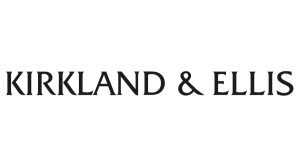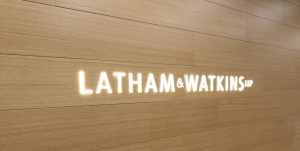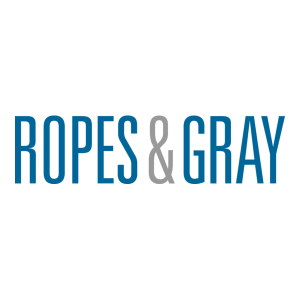Polish Enterprise Fund VII, a private equity fund managed by Enterprise Investors (EI), has signed an agreement to acquire a 65% stake in Pan-Pek, a leading bakery producer and retailer in Croatia. EI will team up with Ivan Parać, the founder and CEO of Pan-Pek, to facilitate the company’s dynamic future growth.
The value of the transaction was not disclosed.
Pan-Pek was established in 1992. Today it is one of the biggest producers of frozen bakery products in the Adriatic region, serving modern grocery retailers in Croatia. Pan-Pek also operates its own network of bakery outlets numbering around 50 stores, predominantly in the Zagreb area. Through its retail operations the company offers a variety of breads, baguettes and sandwiches that customers can enjoy at home or on the go. In recent years Pan-Pek introduced state-of-the-art, fully automated production lines for selected product categories, and continues to invest in modern equipment. In some categories the company has unparalleled production capacities across the Adriatic region. The main factory is in Zagreb, with a second smaller plant located in Dakovo, Eastern Croatia. In 2017 Pan-Pek generated over EUR 32 million in revenue. The company currently employs over 700 people.
“I am very proud that Pan-Pek will partner with Enterprise Investors, one of CEE’s biggest and most experienced private equity funds. With this support, we will significantly strengthen our position on the market, developing together with our suppliers to meet the growing expectations of our customers in both the wholesale and retail channels,” said Ivan Parać, CEO of Pan-Pek.
Enterprise Investors is one of the largest private equity firms in Central and Eastern Europe. Active since 1990, the firm has raised nine funds with total capital exceeding EUR 2.5 billion. These funds have invested EUR 1.8 billion in 140 companies across a range of sectors and exited 126 companies with total gross proceeds of EUR 3.6 billion.
Interview with Beragua
Q. Please tell me about your involvement in the deal?
Beragua was selected by Enterprise Investors to perform the strategic and commercial Due Diligence of the Company. During the process, we performed an in-depth market analysis as well as the full review of the company’s performance, we identified and proposed commercial improvements based on international best-in-class models, estimated the potential growth for the business and contributed to understand the customer perception of the model and evaluate potential future developments. During our work, we performed an extensive groundwork evaluating the main business models operating in the market and understood their competitive positioning in terms of pricing, value proposal and commercial model.
Q. Why is this a good deal for all involved?
We believe that for Enterprise Investors, Pan-Pek is a superb platform to enter the sizeable Croatian bakery market, offering both good organic growth prospects and the possibility to lead the consolidation of a market which is still very fragmented and shows a strong weight of traditional retailers. In addition, the internationalisation of the Company can be contemplated in the near future.
For the Company, the partnership with Enterprise Investors, a reputed Private Equity firm with broad experience in retail and in bringing small companies to next development stages, will represent also a great support and impulse.
Q. What challenges arose? How did you navigate them?
Understanding the country specific peculiarities in each industry is always a challenge.
In this case, Croatia exhibits two main specificities that shape its market: first of all, its bakery consumption is significantly higher than in other European territories, which partly explains the strong relevance of specialists. These models have found their space as proximity operators in high traffic locations as well as residential areas and became very successful. The main difference between specialised bakery formats in Croatia vis-à-vis other countries is the lack of dedicated areas for customers to sit in most of the premises.
The second one is the massive importance of tourism (in fact, the number of tourists has increased significantly during the last years reaching 17.5 million in 2017 over a total population of 4.2 million inhabitants), which requires retail businesses to adapt their models to satisfy the demands of both permanent residents and domestic and foreign tourists.
Due to these peculiarities, we needed to devote a good amount of time ‘on the ground’ in order to clearly understand drivers of consumption of bakery products in Croatia and particularly main shopping missions covered by specialists vs. food retailers or traditional businesses.
We also worked very hard in bringing new commercial ideas implemented by other international peers and adapting them to Croatia and to the Company particularities.
Q. If you were to work on this deal again, what would you do differently?
In our view, there are always small aspects to be improved and lessons learnt after finishing each project. However, in this case the work has been carried out very smooth, combining analytical tasks with a strong interaction with investors, management and ownership. We believe that, overall, it has been a great experience and an excellent job from all parties involved.
Q. What was your personal favourite part of working on this transaction?
Every industry in each market has features of its own and the bakery segment in Croatia is not an exception. In my personal view, understanding the dynamics of very successful proximity players with different business models than the ones of large international players, has been the most interesting part of our work.
In most of the countries (i.e. Europe and US) bakery concepts evolved from pure specialists towards bakery cafes, where value added goods such as prepared meals, soups, salads, juices or smoothies have a strong share in the assortment. In these models, customers value an attractive in-store atmosphere where they can sit down and relax.
However, the market in Croatia is more oriented towards the ‘on-the-go’ consumption and main competitors have a limited assortment with a reduced offer of value added products. Despite this narrow offer, these small proximity formats have proven to be very successful and are consistently gaining market share from the rest of incumbents.
Moreover, the strong interaction with the Investors and the quality of internal discussions carried out with the Company Management and Ownership have also been one of the most interesting parts of our work.




















